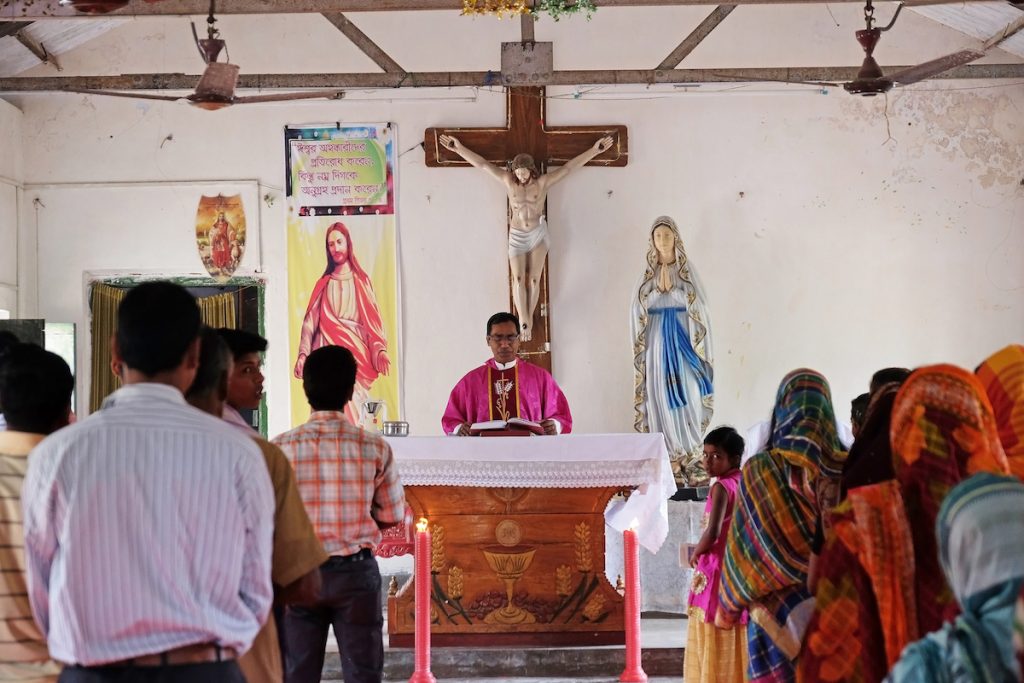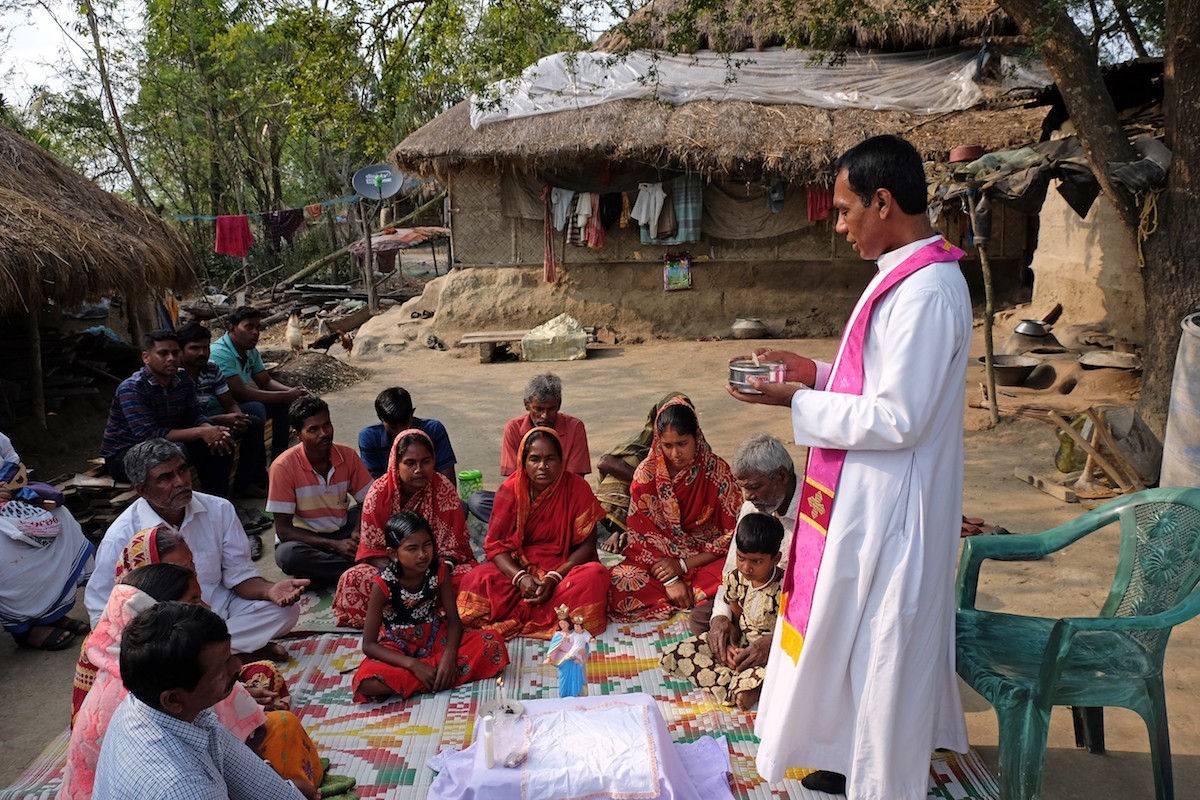“I came back happy,” says Barbara Rettig, Aid to the Church in Need’s (ACN) head of projects for parts of India, as she returned from a trip to West Bengal. “I saw a joyful and hopeful Church, with people singing during Mass, and beating drums… Over there, I felt that faith is joy. People go to Mass. Churches are full.”
India is a multicultural country, which according to tradition first received the Christian faith from Saint Thomas, the Apostle, in the mid-first century, after he came ashore on the Malabar coast, near the old port of Muzaris (Cranganore).
Today, Christians makeup about 2.3 percent of the population, spread throughout the country. Nonetheless, in some parts of India, there are obstacles to religious freedom, with some states having approved laws to regulate conversions. “There is no anti-conversion law in West Bengal yet, said Rettig, adding “There is greater religious freedom there, compared to other parts of the country.”
India’s Constitution guarantees religious freedom, based on treating all religious traditions equally. However, according to ACN’s 2021 Religious Freedom Report, anti-conversion laws are being approved at the request of nationalist Hindu groups who fear that India’s Hindu character is being threatened by the growth of competing religions. Therefore, the laws are disproportionately targeting their respective states’ religious minorities. Muslims and Christians are particularly affected and harassed because both religions have missionary activity, the report adds.

Free from anti-conversion laws, in the state of West Bengal the Church continues to thrive thanks to the attention of its shepherds. “During my trip, I got a real grasp of Jesus’ request that ‘the shepherd should know its flock and the sheep should know the shepherd’s voice.’ I saw it especially when I was in the car with a bishop. The people would wave to him as they passed, and the bishop would wave back because he knew who they were. It was a lovely experience.”
This closeness of the clergy is also visible among the priests, the women religious, and some of the laypeople who accompany the Basic Ecclesial Communities (BEC), which are small groups of faithful rooted in the Word of God and the Eucharist, and they extend their service for the pastoral and social development of the situation in their local neighborhood. “They meet to share their faith and reflect on the Word of God, following the seven-step Gospel Sharing Method. There is an atmosphere of intense communion, and they treat the Word of God with great respect. At the beginning of a meeting, the Bible is brought in procession and enthroned. They treat it with such reverence that I was really impressed. The Bible is really venerated,” Rettig explains.
The formation of people who accompany the faithful is a priority for ACN in this region, according to the head of projects for India. “We are supporting programs to strengthen animators for the BECs and the formation of leaders who can continue to help to keep the faith alive, not only the ones who accompany the BECs but also people who participate in other pastoral activities. We will not leave them alone. We must appreciate the fact that there is no anti-conversion law in this area.”
Other projects supported by ACN in West Bengal include the construction and renovation of small churches in rural areas. ACN also helps with the training of catechists, the formation of seminarians, priests, and sisters, and provides subsistence aid for priests through Mass Stipends. — Carlos Rosas-Jiménez







